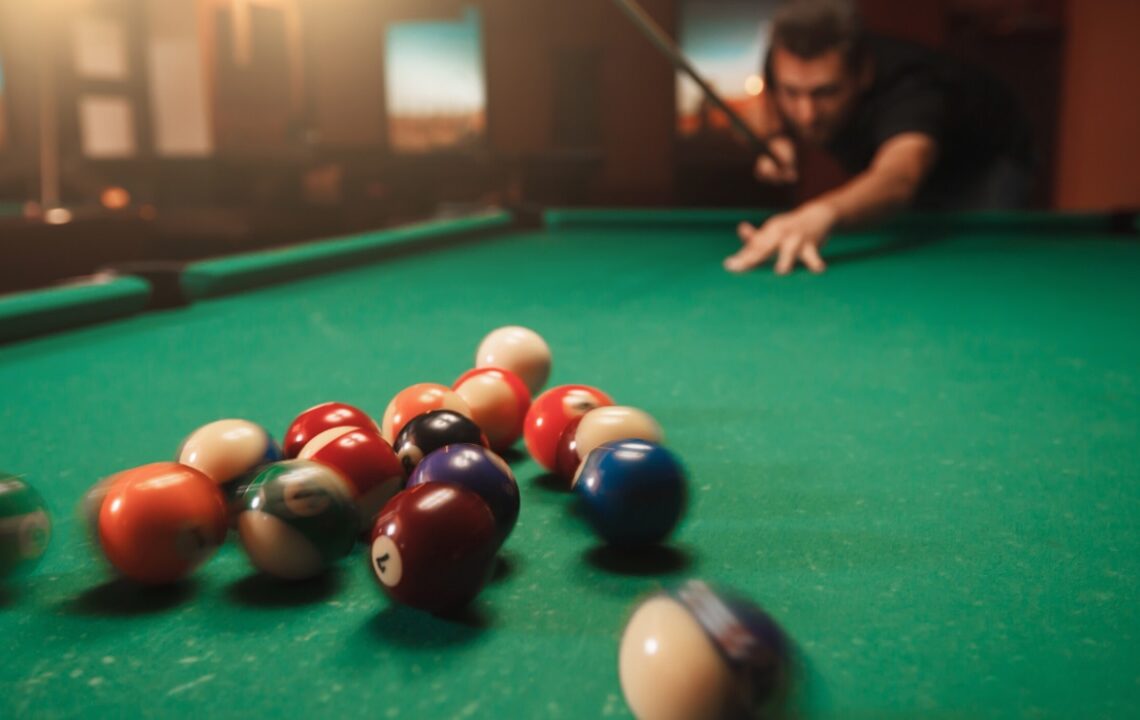Introduction
Is pool a sport? This question starts many debates in bars, tournaments, and homes around the world. Some people think of pool as just a fun game. Others believe it is a serious sport that needs a lot of skill.
The short answer? Yes, pool is absolutely a sport.
Pool, also known as billiards, is enjoyed by millions across the globe. People play it casually with friends over drinks. Professional players compete for hundreds of thousands of dollars in prize money. The game exists in both worlds.
This article examines whether pool truly qualifies as a sport. We’ll look at the physical demands, mental requirements, competitive structure, and official recognition. By the end, you’ll understand exactly why pool deserves respect as a legitimate sport.
Understanding Pool
Pool has a rich history stretching back centuries. The game evolved from outdoor lawn games similar to croquet. By the 15th century, people moved the game indoors onto tables. Kings and nobles played early versions in Europe.
Modern pool developed throughout the 1800s and 1900s. Different variations emerged across countries. Americans popularized 8-ball and 9-ball. The British developed snooker. Each version has unique rules and strategies.
Popular Pool Variations:
8-Ball – The most common version worldwide. Players must pocket either solid or striped balls, then sink the 8-ball to win. This is what most people think of when they hear “pool.”
9-Ball – Professional players prefer this fast-paced game. You must hit balls in numerical order. Sink the 9-ball and you win immediately.
10-Ball – Similar to 9-ball but more challenging. You must call your shots, adding strategic complexity.
Snooker – Played on a massive 12-foot table with 22 balls. This British game requires incredible precision.
The equipment seems simple. A pool table, balls, and cues. But professional-grade equipment costs thousands of dollars. Tables must be perfectly level. Cloth must be pristine. Balls must be regulation weight and size. The cue becomes an extension of the player’s body after years of practice.
So is pool table a sport? The table is the arena where athletic competition happens, just like a basketball court or tennis court.
What Makes an Activity a Sport?
Before deciding if pool qualifies, we need clear criteria. What exactly makes something a sport?
Key Characteristics of Sports:
Physical Skill – Sports require bodily movement and coordination. Athletes train their muscles, reflexes, and motor skills.
Competition – Sports involve contests between individuals or teams. Someone wins, someone loses.
Rules – Every sport has specific regulations. These rules create fair, consistent competition.
Recognition – Legitimate sports have governing bodies, professional leagues, and organized tournaments.
Reproducibility – Anyone can learn and compete. Sports aren’t based on luck or randomness.
Some activities spark debate. Is chess a sport? What about darts? Or poker? These questions get complicated because they emphasize mental ability over obvious physical exertion.
The International Olympic Committee actually recognizes pool as a real sport with its own sports confederation. That’s significant official validation.
Pool as a Competitive Activity
Pool has a massive competitive structure worldwide. This isn’t just people playing in bars.
The World Pool-Billiard Association (WPA) governs professional pool internationally. They organize world championships, standardize rules, and maintain player rankings. The 2025 World Pool Championship featured a record-breaking $1 million prize fund, with the winner taking home $250,000. That’s serious money for a “game.”
Major professional tours exist across multiple continents. The Matchroom Pool tour runs events in Europe, Asia, and the Middle East. The US Pro Billiard Series hosts tournaments throughout America. In 2022, the US Pro Billiard Series offered nearly $775,000 in total prize money.
Top players earn six-figure incomes from tournament winnings, sponsorships, and exhibitions. They practice 6-8 hours daily. They hire coaches. They travel constantly for competitions. This mirrors what athletes in recognized sports do.
Regional and local leagues provide competition for amateur players. The American Poolplayers Association (APA) has over 250,000 members. That’s a massive organized community.
Is pool considered a sport by these organizations? Absolutely. They treat it with the seriousness of any professional sport.
Read Also: How Long Does a Hockey Game Last?
Physical and Mental Demands of Pool
Many people don’t realize how physically demanding professional pool actually is.
Physical Requirements:
Players spend hours standing and bending. Your back, legs, and core must support awkward positions. Try holding a bridge position for 30 seconds. Your arm starts shaking. Now imagine doing that for 6-hour matches.
Research in the Journal of Sports Sciences shows that precision sports like pool engage significant muscle groups and fine motor skills similar to recognized physical sports. Your hand-eye coordination must be exceptional. The stroke requires perfect mechanics repeated thousands of times.
Professional players develop specific muscle memory. Their stroke becomes incredibly consistent. Any slight variation means missing shots. This takes years of physical training.
Mental Demands:
Pool is intensely cerebral. You must plan several shots ahead. Every decision affects future options. One mistake can cost you the entire game.
Focus and concentration are critical. Matches last hours. You can’t lose mental sharpness. Professional players practice meditation and mental training techniques.
The pressure is enormous. Thousands of dollars ride on single shots. Crowds watch your every move. This mental toughness separates good players from great ones.
Is 8 pool a sport based on these demands? When you consider the physical precision and mental stamina required, the answer is clearly yes.
Comparison with other sports helps. Chess is recognized as a sport by the International Olympic Committee despite minimal physical exertion. Shooting sports require precise physical control similar to pool. Darts involves hand-eye coordination and mental focus. Pool combines all these elements.
Public Perception and Debates
Not everyone agrees that pool is a sport. The debate continues.
Arguments Against Pool as a Sport:
Some people say pool lacks sufficient physical exertion. You’re not running, jumping, or building cardiovascular endurance. The calorie burn is minimal compared to basketball or soccer.
Others argue the bar association hurts pool’s image. Many people only experience pool casually while drinking. This recreational context makes it seem like just a game.
The accessibility creates confusion. Anyone can play pool reasonably well without training. True sports require years of development to reach basic competency.
Arguments Supporting Pool as a Sport:
Professional players display clear athletic ability. Their precision, consistency, and endurance under pressure mirror recognized athletes.
The competitive structure is identical to other sports. Leagues, tournaments, rankings, prize money, sponsorships – pool has everything.
Pool meets the specific criteria for sports classification: it requires refined physical dexterity and control, has competitive structure, and receives professional recognition.
Governing bodies worldwide recognize pool officially. If Olympic committees call it a sport, that carries weight.
The skill ceiling is incredibly high. The difference between amateur and professional players is massive. This gap exists in all legitimate sports.
What is a sports pool in this context? It’s an athletic competition requiring dedicated training, mental toughness, and physical precision.
Conclusion
So is pool a sport? After examining the evidence, the answer is definitively yes.
Pool requires genuine physical skill and refined motor control. Professional players train their bodies extensively. The precision needed for high-level play demands athletic ability.
The mental demands are equally intense. Strategy, focus, pressure management, and psychological resilience separate winners from losers.
Pool has complete competitive infrastructure. Professional leagues, international governing bodies, substantial prize money, and organized tournaments exist worldwide. Millions of players compete at various levels.
Official recognition from major sports organizations validates pool’s status. The International Olympic Committee and numerous national sports councils recognize pool as a legitimate sport.
The debate often comes down to definitions. If your definition of sport requires heavy cardiovascular exertion, pool might not qualify. But that’s an unnecessarily narrow view.
Golf, shooting, archery, and darts are all recognized sports with similar physical profiles to pool. Pool fits comfortably in this category of precision sports.
Is pool considered a sport by those who matter? Yes. Professional players, governing bodies, sponsors, and millions of competitive players treat it as a sport. That’s what counts.
Next time someone questions whether pool is really a sport, you’ll have the evidence to answer confidently. Pool absolutely deserves recognition alongside other athletic competitions.
Now it’s your turn. Do you think pool is a sport? Have you played competitively? Share your thoughts in the comments below.
Famous Pool Players You Should Know
The greatest players demonstrate pool’s athletic credibility.
Efren Reyes – Nicknamed “The Magician.” Many consider him the greatest player ever. His creativity and shot-making ability seem impossible.
Shane Van Boening – Five-time U.S. Open champion. Dominates American pool with incredible consistency.
Allison Fisher – The most successful female player in history. Won over 80 professional titles.
Earl Strickland – Known for intense competitiveness. Won

















